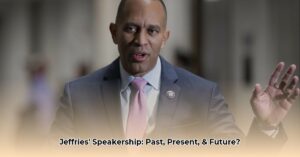Political Upheaval Following Immigration Law Rejection in Germany
Germany’s political landscape is in turmoil after the Bundestag (German Federal Parliament) rejected a controversial immigration law proposed by Friedrich Merz, leader of the Christian Democratic Union (CDU). This rejection has exposed deep divisions within the country and sparked intense debate about the future of immigration policy. What were the key factors that led to this outcome, and what are the potential consequences? This recent legislative defeat goes beyond a simple policy disagreement; it reflects deeper societal anxieties and uncertainties. For further insight into managing large-scale transitions, see this analysis of transition policies.
Public Opinion and Political Maneuvering: A Recipe for Gridlock
Public opinion on immigration is complex and divided. While some polls suggest support for stricter controls, there’s no clear consensus on the best approach. This makes it difficult for politicians to gauge public sentiment accurately. Merz’s gamble to appeal to those favoring tighter border security by seeking support from the far-right Alternative for Germany (AfD) backfired dramatically, alienating moderate voters and damaging the CDU’s reputation. How effectively can political leaders navigate such a divisive issue? The fallout from this political miscalculation is likely to be significant.
Cracks in the Coalition and Questions of Effectiveness: Underlying Tensions Exposed
The rejection further strained Germany’s already fragile governing coalition. Disagreements on immigration policy highlight deeper ideological differences between the coalition partners. This instability raises questions about the government’s ability to address other pressing issues. Furthermore, the proposed law faced criticism for being more symbolic than substantive. Critics argued that it wouldn’t effectively address the root causes of immigration challenges and might even harm Germany’s international standing. Will this rejection lead to a more comprehensive and effective approach to immigration policy? The current political climate demands a nuanced response.
- Merz’s strategy to collaborate with the AfD backfired, revealing deep divisions within the CDU and alienating moderate voters.
- Public opinion on immigration is divided, creating a challenging environment for policymakers.
- The proposed law was criticized for lacking effectiveness and potentially harming Germany’s international reputation.
The Aftermath and the Path Forward: Navigating a Divided Landscape
The law’s rejection has left Germany politically polarized. The CDU faces a significant challenge in regaining public trust, while the governing coalition is under pressure to find common ground. The AfD, on the other hand, may see a surge in popularity as it seeks to capitalize on the government’s perceived failure to address immigration concerns. What are the long-term implications of this political upheaval? This situation demands careful analysis and strategic planning.
Stakeholder Impacts and Future Considerations: Charting a Course Through Uncertainty
The fallout from the rejected law has wide-ranging implications for various stakeholders. The CDU/CSU faces reputational damage and needs to reassess its strategy. The governing coalition has an opportunity to present a more unified and humane approach. The AfD may gain support, further complicating the political landscape. How will these different actors adapt to the changing political dynamics? The ongoing debate underscores the need for a comprehensive and sustainable immigration policy that balances security concerns with humanitarian values. Finding this balance is crucial for Germany’s future.
Navigating Germany’s Immigration Policy: Key Considerations
Germany’s immigration policy is a complex and evolving issue, shaped by a variety of factors. From post-WWII labor needs to the 2015 refugee influx, the country has grappled with balancing economic demands, national identity concerns, and international obligations. Understanding this historical context is vital for navigating the current political climate. What lessons can be learned from past policy decisions? This exploration of historical context provides valuable insights.
A Nation Divided: Finding Common Ground in a Polarized Landscape
The recent rejection of the immigration law has intensified existing divisions within German society. Addressing these deep-seated concerns requires open dialogue, evidence-based discussions, and a willingness to engage with opposing viewpoints. How can Germany move beyond simplistic narratives and create a more inclusive and effective immigration policy? The current political climate necessitates thoughtful and constructive engagement.
Future-Proofing Immigration Policy: Essential Steps for a Sustainable Approach
Navigating Germany’s immigration debate requires understanding the complex interplay of factors. Public perception, political motivations, enforcement challenges, and economic realities all shape policy decisions. The involvement of actors such as political parties, individuals, and international organizations further complicates the landscape. How can Germany create an immigration policy that effectively addresses these complexities? These intertwining elements demand careful consideration for effective policy development.
- Germany’s immigration policy is shaped by historical context, economic needs, and national identity concerns.
- The rejection of the immigration law highlights deep divisions within German society.
- A sustainable immigration policy requires open dialogue, evidence-based discussions, and a willingness to engage with opposing viewpoints.
To truly future-proof Germany’s immigration policy, several essential steps are needed. These include streamlining asylum processing, improving deportation mechanisms, attracting skilled workers effectively, strengthening integration efforts, and promoting transparent public discourse. These measures are crucial for creating a more sustainable and equitable system. Will Germany effectively implement these crucial reforms? The success of these measures remains to be seen.







